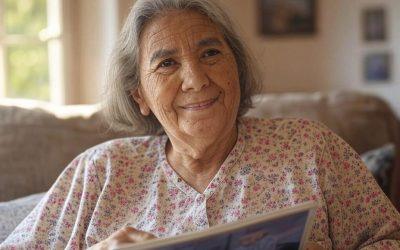When Memory and Loss Collide
After losing his best friend, Noah found himself lost in waves of memories—conversations replaying like a broken record, simple tasks feeling insurmountable, and an ever-present ache that disrupted sleep and concentration. Why does grief feel this way? Noah’s story underscores a crucial truth: grief is not just emotional—it’s neurological, reshaping our thoughts, perceptions, and even body chemistry.
“I thought my mind was betraying me, but learning there was a real scientific explanation helped me be kinder to myself.”
When the Brain and Heart Mourn Together

A Mind In Mourning
After losing his best friend, Noah found himself lost in waves of memories. Their laughter echoed in his mind. Their conversations replayed like a broken record. Sometimes, he swore he heard his friend’s voice calling his name. He forgot where he placed his keys, found himself unable to focus at work, and at night, sleep felt impossible. Why does grief feel this way?
Noah’s experience is not unique. Grief is not just emotional—it is neurological. It rewires the brain, disrupts thought processes, and alters body chemistry. Understanding the science behind grief can help us navigate its depths with greater awareness and self-compassion.
How the Brain Processes Grief vs. Trauama.
Grief vs. Trauma
While grief and trauma can overlap—especially in sudden, shocking losses—they engage different neural pathways. Grief is a prolonged emotional process involving specific brain regions tied to memory and emotional regulation, while trauma typically triggers immediate fight-or-flight responses.
Key Brain Regions in Grief
-
The Limbic System (Emotional Control Center)
- Amygdala: Processes emotions like fear and sadness; during grief, it becomes hyperactive, intensifying feelings of sorrow and anxiety.
- Hippocampus: Responsible for memory and learning; grief keeps it on high alert, which explains the sudden flood of memories.
-
The Prefrontal Cortex (Rational Thought & Decision-Making)
- Decreased activity in grief can result in “brain fog,” making everyday decisions—like organizing bills or responding to emails—feel overwhelming.
-
The Default Mode Network (Self-Reflection & Rumination)
- Overactive in grief, causing repetitive thoughts of regret, longing, and “what-if” scenarios—a cycle sometimes called “grief loops.”
Why Grief Triggers Memory Loops & Longing
- Dopamine & The Brain’s Reward System
- When loved ones were alive, their presence triggered dopamine release, the feel-good chemical. After loss, the brain still anticipates these rewards, leading to persistent longing—much like withdrawal.
- Hippocampus & Memory Retrieval
- Emotional triggers (songs, scents, photos) activate stored memories, making them painfully fresh. The mind attempts to grasp a reality that no longer exists.
- Neurological Echoes & Phantom Presence
-
- Many report hearing or feeling their loved one’s presence because the brain has spent years mapping them into daily life. Its wiring doesn’t simply shut off this expectation.
“Grief is the mind’s echo of love, resonating long after we’ve lost what gave it voice.” — Olivia D.
How the Brain Adapts to Loss Over Time
Neuroplasticity: The Brain’s Ability to Rewire
-
- Initially, grief disrupts circuits of attachment and routine. Over time, new neural pathways form, enabling the bereaved to integrate loss into life’s narrative.
Anterior Cingulate Cortex (ACC) & Emotional Regulation
-
- Gradually, the ACC helps regulate sadness and distress, allowing memories to shift from acute pain to a gentler, more reflective sorrow.
New Emotional Associations & Meaning-Making
-
- The brain never “forgets” a loved one, but it learns to carry the grief differently—evolving from raw ache to bittersweet remembrance.
Why Understanding Grief’s Neuroscience Matters
-
Explains Exhaustion
- The cognitive overload of grief—constant memory retrieval and emotion processing—drains mental energy, leading to fatigue and even social withdrawal.
-
Validates Physical Responses
- Grief elevates stress hormones (like cortisol), weakens the immune system, and can manifest as broken heart syndrome. Recognizing it as a physical process fosters self-compassion.
-
Normalizes “Grief Surges”
- Sudden breakdowns years later aren’t failures; they’re a testament to grief’s enduring nature. Knowing the brain retains emotional memories helps us accept these surges.
Things To Try This Week!
- Cognitive Check-In:
Notice moments of forgetfulness or difficulty focusing. Gently remind yourself it’s part of grief’s neurological impact. Patience aids healing.
- Mindful Memory Ritual:
Choose a calming time to light a candle and reflect on a cherished memory. Observe without judgment how your mind processes it.
- Community Connection:
If possible, join a local or online grief support group. Shared stories and empathy can ease the brain’s stress response, reminding you you’re not alone.
Conclusion
A Testimony Of Love
Grief, as a neurological process, underscores the deep bonds humans form. The brain doesn’t merely forget or move on—it reconfigures itself to survive in a world altered by absence. Although grief may never completely vanish, we learn to carry it more gently through:
- Active Coping (therapy, journaling, support groups)
- Rituals of Remembrance (candles, memorial activities)
- Self-Care and Compassion (mindfulness, balanced routines)
In the end, grief is a weight we bear because we dared to love deeply. Our minds, remarkable in their adaptability, enable us to hold that love close even when its physical source is gone.
Though the brain’s response to grief can feel overwhelming, it also reveals our capacity for deep love and resilience.
Understanding that time alone doesn’t heal—but rather, intentional actions and nurturing choices do—brings a renewed sense of hope. Explore our cherish collections below for comforting reflections, supportive resources, and heartfelt ideas that honor your journey through sorrow into quieter, more enduring remembrance.
Embracing the Brain’s Pathway to Healing in Grief
Grief weaves through every facet of the mind and body—but so can compassion and understanding. Our All Things Cherish collection offers insights, gentle prompts, and community-based solace, empowering you to reshape your sorrow into a profound testament of love and remembrance.
More Reflections, More Growth
Loss is complex, and the road to healing is different for everyone. These reflections offer insight, support, and guidance as you navigate this journey.
Sometimes, I Still Expect to See Him There—A Reflection on My Turtle’s Presence
Celebrate the life of your loved one with the Dichroic Sea Turtle Cremation Ash Figurine. Handcrafted with care, this figurine infuses your loved one’s ashes into a beautiful sea turtle, symbolizing longevity, patience, and love. A unique way to keep them close to you.
I Still Catch Myself Listening for Him—A Reflection on Grandpa’s Presence
Honor your loved one’s memory with a unique Tree of Life crafted from over 300 feet of wire and a 3” Tranquil Swirl Orb infused with their cremains. This memorial piece is a symbol of enduring love, providing comfort and peace through a beautiful work of art.
When Grief Weighs on Mind, Body, and Spirit: Understanding the Silent Toll of Loss
Grief touches every part of us—the mind, body, and spirit. From cognitive fog to broken heart syndrome, this guide explores the full spectrum of grief’s effects and offers insights into how we can heal and carry the weight of our loss.
Debunking the “Time Heals All Wounds” Myth: Transforming Grief Through Active Healing
Grief doesn’t fade with time—it requires active participation and healing. Learn why “time heals all wounds” is a myth and how engaging in grief through expression, ritual, and support can lead to true emotional recovery.
Thoughtful Gifts for Grandma: The Little Things That Mean the Most
Find the perfect gifts for Grandma that reflect your love and appreciation. From heartwarming jewelry to keepsake boxes and personalized photo albums, discover thoughtful gifts she will cherish for years.
Adventures with My Brother: Gifts That Keep the Journey Going
Celebrate your adventurous brother with gifts that keep the journey going. From personalized journals to survival kits, discover perfect presents for the one who never stays still.
Gifts for the Brother Who Feels Every Beat: The Ultimate Music Lover’s Collection
Discover the perfect gifts for music enthusiasts. From a guitar table lamp to noise-canceling headphones, find the ideal presents to enhance any music lover’s collection.
Thoughtful Gifts for Dad: Because He Deserves to Relax, Too
Shop the ultimate comfort and relaxation gifts that are perfect for unwinding after a long day. From massagers to cozy pillows, these products are sure to provide the relaxation and peace everyone deserves.
The Ultimate Outdoor & Survival Gifts for Dad: Gear Built to Last
Explore top-quality outdoor survival gear, camping essentials, and tactical products that will elevate your next adventure. From portable solar panels and survival kits to tactical backpacks and outdoor cooking tools, gear up for your outdoor journeys.
Explore Journeys of Healing and Solace:
Discover dedicated spaces that offer understanding, guidance, and connection through grief. From the loss of loved ones to life’s challenging transitions, each category provides a pathway to reflect, connect, and find peace in shared experiences.


























